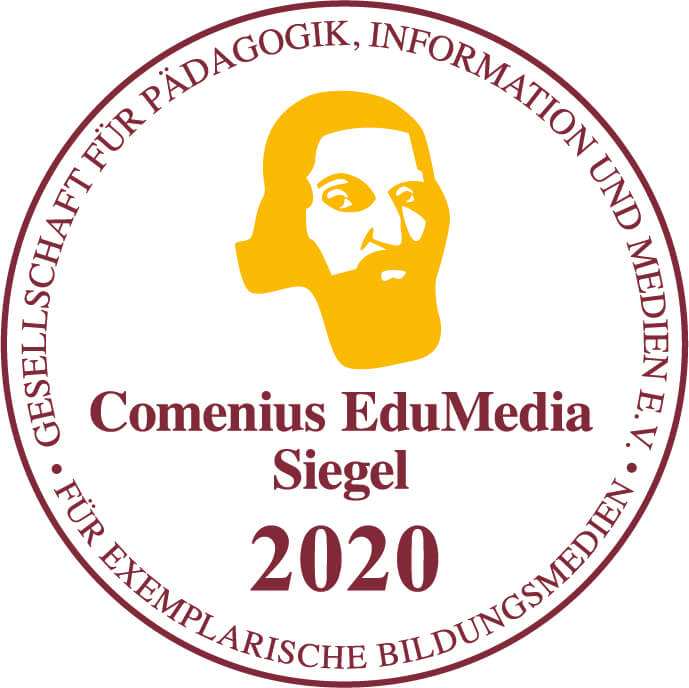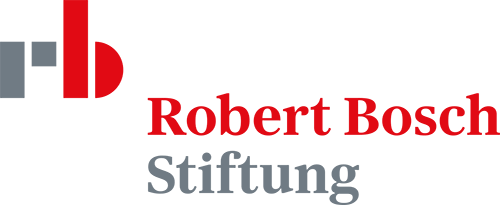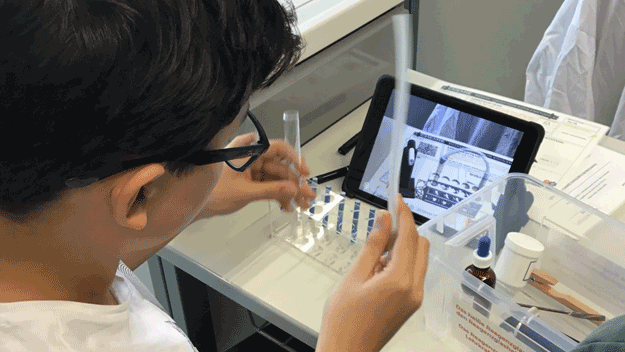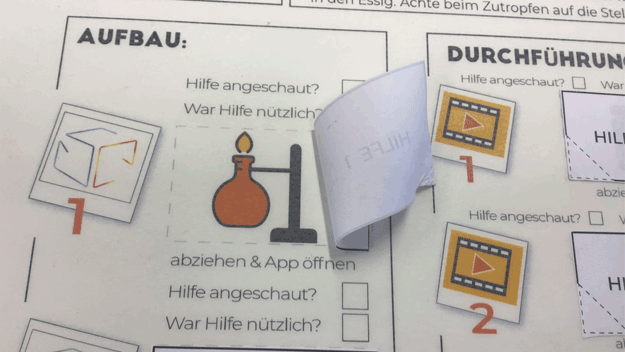Exbox Digital
Description of the research project “EXBOX Digital”
What the project is about…
Digital media are increasingly being integrated into teaching practice and therefore represent a link between school and the student’s everyday life. For this reason, the EXBOX-Digital project developed new teaching materials for chemistry and physics lessons at the secondary level I. Thereby real student experimental boxes, so called EXBOXes, are enriched by digital learning support aids in order to enhance self-paced learning.
Conceptually, an EXBOX consists of an adaptive web-based learning program and three real student experiments. These experiments contain learning aids such as augmented reality (AR), learning videos and images in order to support the students’ experimentation. Furthermore it is expected that they thus can engage with the learning content appropriate to their own learning pace and performance level.
Research & Evaluation
Quantitative, qualitative and eye tracking
A mix of different research methods will be used to evaluate both the web-based training and the working materials on the respective topics. Based on the results, the EXBOX design will be developed iteratively.
Usability Study and Piloting
Students and teachers are actively involved in the design process which is an important part for the design of the teaching materials. Therefore, together with our partner schools, we tested the developed prototypes for their user-friendliness and user experience by means of a first preliminary study (usability study). Currently, the EXBOXes are piloted within school environments.
Awards
The project EXBOX Digital has received the Comenius-Edu-Media Seal from the Society for pedagogy, information and media e.V. (GPI) on September 24, 2020 in Berlin.
Supported by
The project EXBOX digital was funded by the Robert Bosch Stiftung GmbH. The new teaching materials are being developed in collaboration with the Working groups of Didactics of Chemistry and Physics at the Paris Lodron University Salzburg. Our special Thanks go to all project partners involved: Technische Universität München, Pädagogische Hochschule Salzburg Stefan Zweig and the NMS Praxisschule of the Pädagogische Hochschule Salzburg.
http://exbox.uni-salzburg.at






